|
Dear colleagues, I'm throwing a bunch of people on this email who do wonderful work supporting musicians in community contexts through nonprofit organizations. As some of you know, I've been doing a lot of reflecting and some writing about the important opportunity found in creating one-to-one connections, never more important than during a pandemic. Here's an idea that I think is important enough to disperse widely into the field. Along with work for Emmanuel Music, I've been keeping busy supporting a number of colleagues, including myself, to experiment with offering both virtual and live one-to-one music-making. During this time of social isolation, creating human connections to combat loneliness (and the associated negative health effects) is a really important societal issue that musicians (all musicians, any musicians) are well-positioned to help address. The summer months provide the perfect opportunity for orgs to deploy their musicians to connect in personal, meaningful ways with longtime supporters (board, volunteers, donors, etc), an essential constituency for each of our nonprofits. Also because we need to be concerned about the potential for things to get very difficult again in the fall/winter from a public health perspective. I know that some are currently raising needed emergency funds for musicians. That's really the first priority right now. However, over the summer and into next year, it would be wonderful to have a way to continue to pay interested musicians for an ongoing performing activity that simultaneously bolsters the org's relationship with its community of supporters. There is tremendous potential for finding additional philanthropy to support such an initiative. Consider one idea: offering an option of "gifting" musical visits with isolated grandparents, relatives, friends, elderly neighbors--either online (less $) or in person (more $). This is something that we can all appreciate, as we all know people who are vulnerable and cut off from useful human connection. Importantly, this is not only a caring thing to do that provides some benefit to the recipient. Rather, it deepens the org's relationships, and it is also the beginning of experimentation with two kinds of performing that may well be essential skillsets for us to be honing for the foreseeable future: 1. virtual performing over Zoom/FaceTime (what makes it successful as a "live" music experience, how do you create empathy digitally?) 2. in-person, socially distanced performing in outdoor spaces (e.g. driveways, front yards, sidewalks) It is also, I've found, a pretty significant way of helping musicians feel more optimistic, valued, and socially connected themselves during this time. I've been reflecting the most on the challenge of creating "live" musical experiences during this time. There's plenty to think about. Happy to think more specifically with any folks about this. Feel free to circulate within your professional networks. I hope everyone is staying safe while making the best of such strange times.
0 Comments
Prelude: This scenario is rooted in a philosophical belief in the importance of relationships and acts of generosity (rather than transactions) as the foundational orientation that will allow an enterprising musician to thrive in this new reality. After all, everything is based on relationships. During the pandemic, there are still opportunities for musicians to create an income stream through performing, but now the platforms for performing “live” music are different: FaceTime, Zoom, driveways, sidewalks, and backyards. In your immediate vicinity, there are likely hundreds, if not thousands, of isolated individuals. In the coming months, everyday life will be going on around them as they strive to stay safe by adhering to strict social isolation guidelines, especially if they have an underlying vulnerability. Meanwhile, life continues. This includes birthdays and anniversaries, among any number of reasons why people may wish to gather and share a meaningful experience together. And if they can’t, a musical performance, specifically created to connect with, recognize, or honor an individual, may provide something of significant value and affirmation. How might this work? In Sun Valley, for instance, Deborah has a local network through her daughter’s school. Each of the other families that she is connected to has their own birthdays and anniversaries to celebrate, along with parents (grandparents), friends, and neighbors who they care about. Deborah offers to play ten minutes of Bach on her violin for her friend’s neighbor who is elderly and isolated. Her friend connects her with the neighbor, and they set up an appointment. One sunny afternoon, Deborah drives over to the neighbor’s home and sets up her music stand on the driveway, while the neighbor sits on the front steps, twenty feet away (and Deborah’s friend peers over the hedge—or whatever people use as the dividing line between properties in Sun Valley). Deborah chats with the neighbor, acknowledging the unusual situation, asking her a little bit about her life, her family, her musical interests (if any), how long she’s lived in Sun Valley, etc. [See Nina Simon’s The Art of Relevance for why this kind of empathic connection is important to establish before engaging in the artistic experience.] Next, Deborah chooses from several pieces of music that she has prepared, responding, in part, to what she has learned about this individual audience member. Of course, any piece of music can be relevant simply by being offered up as a beautiful aesthetic gift, but there is also the possibility of forging a more specific connection now that Deborah knows something about the individual who is listening. Deborah asks her friend (who is still peering over the hedge) to take a photo with her iPhone that, with permission, Deborah and her friend can share on social media. After performing for the neighborhood and exchanging a few pleasantries, Deborah returns home. Meanwhile, the neighbor is on the phone with her personal network telling them about the beautiful, uplifting experience that she was privileged to enjoy—just for her!—that afternoon. The next day, Deborah receives two requests from people she doesn’t know (friends of friends), asking if she could do the same thing for a grandfather, an aunt, a wedding anniversary, a neighbor who is living alone… Deborah decides to send the photo and a short message out to her person network, including all of the families in her daughter’s school that she has gotten to know in recent years. It might read something like this: Dear friends, Your move, Deborah. * Alternatively, should this become something that catches on and there is increasing demand for your services, asking for a voluntary contribution, for those who are able, to your personal bank account by PayPal or Venmo is the next step. I recommend that you 1. begin by offering this service freely in order to make clear that it is about the mission (not the money) and then 2. build a “suggested” fee structure once you have gotten started and begin to see that there are going to be continued requests for performances. A really nice thing to be able to do would be to always offer the option of a freely given performance, should someone need music who can’t afford to make a donation. Perhaps online performances can remain available for free, if necessary, while an in-person visit—clearly the more labor and time-intensive version—has the expectation of a fee. I've been musing with colleagues about what is "live" online vs. "live" in person, with the assistance of anecdotal data provided by The Late Show's Stephen Colbert. Dear all, Please enjoy this ten minute video of Stephen Colbert interviewing John Oliver. While, on one hand, it is simply entertaining, there's also something valuable in here for our planning. These two men have a real, authentic relationship, and part of what I found moving about watching them interact is that I could feel it, and that meant something to me. With our programming online, how do we accomplish this? I think feeling that human connection is so important, if not essential, and we will need us to get comfortable being vulnerable in ways that are not standard practice for presenting live music. "Live" online is going to be different from "live" in a hall. For starters, rather than speaking to the camera (a generic audience), maybe everything that is spoken about online is shared through the format of a conversation. -Heath Hi all,
Please enjoy this segment from Wednesday's A Late Show with Stephen Colbert. I believe that the show's director is purposely putting Evie, Stephen's wife, into the room with him so that she can be his audience, giving him someone that he can speak to directly. This creates the vulnerability and empathy that was absent when he was speaking directly into the camera and telling jokes. She continues to be present, briefly, throughout the segment. I think it really makes a difference. -Heath Hi Johnny, I have an idea that I think can contribute to societal wellbeing, as we look to combat the negative health effects that will come from loneliness and social isolation in the coming months. Building on the impressive outpouring of musicians sharing their music widely through social media during this pandemic, there is a next step that I want to advocate for experimenting with: one-to-one human interactions, through music, and especially for the most vulnerable segment of society, older adults. This is about prioritizing empathy. It's one thing to perform Bach into the camera for an audience of many. It's quite a different experience to perform Bach into the camera for a specific person. That person receives a very significant benefit of individualized empathic connection... but so does everyone else who views it, even though their participation is vicarious. We feel both the music and the human connection that we are witnessing. (There's more detail to add, and Sherry Turkle and Nina Simon can support this way of thinking.) I'm asking if you would kindly share this email with Yo-Yo because of the incredible platform that he has to influence musicians, from students of all levels to professionals. If he leads the way by experimenting with this format of performing/presenting online, hopefully others will begin to do so as well. I would love to see thousands of individual musicians (think of all the music students out there stuck at home) doing their piece to contribute during this crisis in the coming months. -Heath Hi Heath, I've been thinking about this all day and I think its worth a discussion about the kinds of relationships that one-on-one programs works best for. There is definitely an element of friendship and an element of professionalism needed to make this work. What's the magic ratio and how do you translate that through a video or digital program? I've got a few personal examples that I've been thinking through recently: 1) Even given all of my work, thinking about doing a concert like this for my own grandmother, who's still alive, makes me uncomfortable. I wonder why? 2) I had no desire to play for my Mom while she was in her final months. It felt more important to just sit and talk with her. Again, why didn't that feel right? 3) I also think about you playing for Varda. That seems to be the perfect kind of relationship. A mixture of close friendship and professional respect. I think this will come up with a project like this, where you're asking people to think about their own networks. I also think it raises a larger question that the field (and general society) about cultivating long-term relationships with older adults outside of our families. A secondary question will be access to content. How will older adults get these concerts, especially the ones living alone? Should musicians go and play on their front lawns? Or is there a digital way to make this work? -Lauren Dear Yo-Yo, Thank you for being supportive and interested. In a sense, as you wrote in your email, we are all "friends in need" now, especially those who are the most isolated and vulnerable. I'm sure you know the research that former Surgeon General Vivek Murthy has often quoted about the public health concern posed by loneliness. A study showed that the mortality impact of loneliness is equivalent to smoking 15 cigarettes a day. Looking ahead, sadly, a mental health pandemic is expected to closely follow this viral pandemic... What I'm asking you to consider doing is modeling (publicly) what so many other musicians can do (privately). I think that, if you experiment with these ideas using your social media platform, it will normalize them and make them possible for others to consider. It's basically a musical "care package" with something chosen to warm the recipient's heart. I feel strongly that anyone else who witnesses it online gets to vicariously experience that heart-to-heart connection. This is potentially much more powerful than a heart-to-"everyone out there on the internet" connection. Two brief examples: 1. On Sunday evening, my daughter held up her iPad and recorded me playing the G Major prelude in her bedroom. Nothing fancy. I emailed it to the rector of Emmanuel Church. I wrote to her: Dear Pam, I've been safely at home for a month while you and many others are bravely carrying out your roles, taking care of so many people who are vulnerable and at risk. You've been on my mind, and I wanted to simply offer three minutes of Bach that I recorded for you this evening. Three minutes of Bach, hopefully to be enjoyed in three minutes of peace. Sending my best wishes to you and your family. 2. I had a conversation with a young resident musician in Providence who is feeling like practicing has no meaning anymore. She's feeling hopeless about her future as a musician. While she's right to feel scared about her professional prospects, she's not at all in touch with just how valuable she is as a musician--right now.
Through our chat, I found out that she and her husband had recently befriended an older couple in Providence through their church. Now they deliver groceries to them. The upshot is that she hadn't thought about this before, but now she's considering how she might play a short online concert for them every Sunday evening. Also, importantly, this idea is renewing her sense of purpose, motivating her to practice and feel agency as a musician during this pandemic. So what am I specifically asking of you? As you continue to offer the same #SongsOfComfort repertoire that's easy enough to share and appreciate through social media, please consider experimenting with personalizing at least some of them. This has to be based on real relationships to be meaningful (duh). Providing an anecdote that helps explain WHY you are playing music for someone brings it home emotionally. I recognize that this is not the same when you have thousands of social media followers, but for the sake of modeling, I think you can make a personal message while still preserving someone's privacy. Speaking directly into the camera to deliver your message would be the most vulnerable way to do it, but if that feels uncomfortable, posting/tweeting the personalized message along with the video also works. For instance, "Hi Manny, I miss seeing you and being able to play sonatas. I wish we could be together, reading the Brahms e minor and sharing a meal. I'm sending you the opening theme because it reminds me of you." "Hi Judy, I miss seeing you. Remember when I played that beautiful Borodin quartet melody at your son's wedding? Well, I'd love to share that with you again now." "Heath, I remember how poorly you played the C Major allemande for me so many years ago. Let me take this opportunity to remind you of how it's supposed to sound." (just kidding, don't use this one.) I'm thinking of all the conservatory students at home these days (and their teachers), the freelancers, the teaching artists, the Broadway pit players, the orchestral musicians. Everyone knows at least a few people who are vulnerable and isolated. It would be so meaningful if many, many musicians felt empowered to reach out, using their musicianship, and make this pandemic into an opportunity to create empathy and combat social isolation. -Heath |
AboutSharing student project documentation and, more recently, my own. Archives
June 2022
Categories |
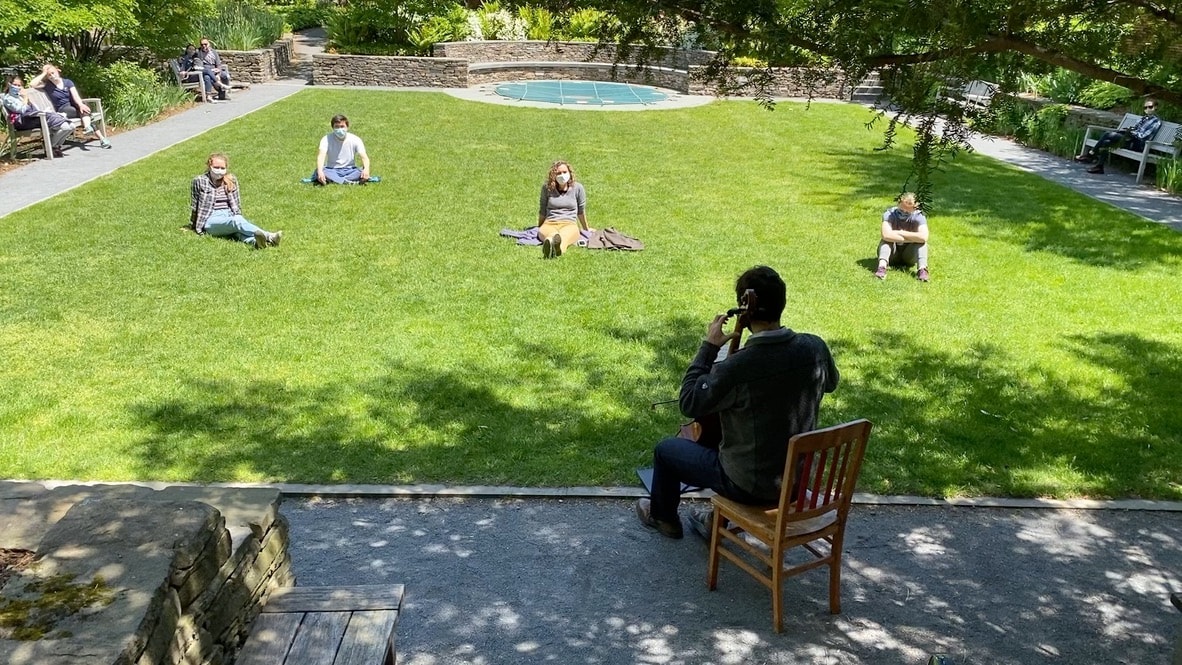
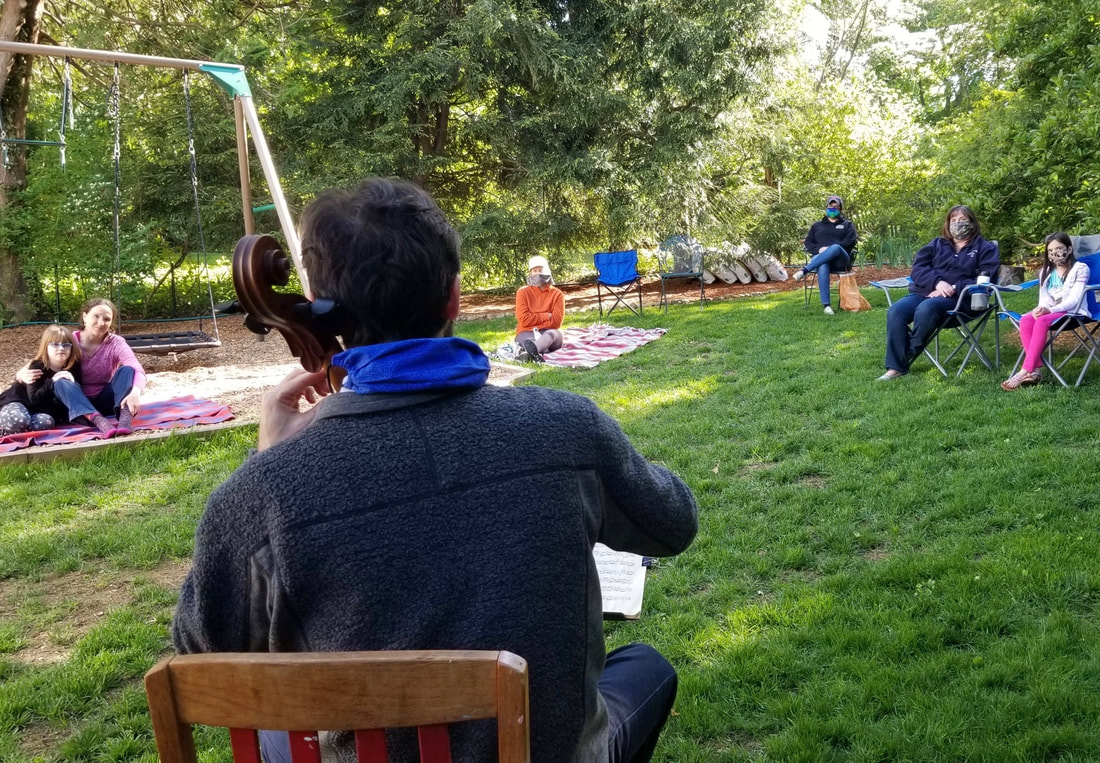
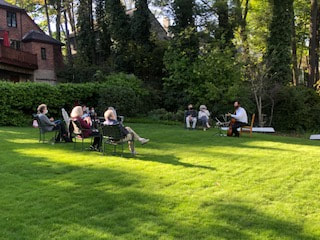
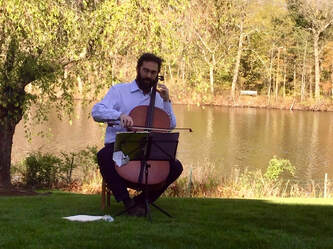
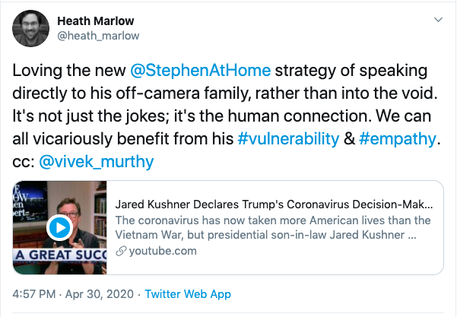
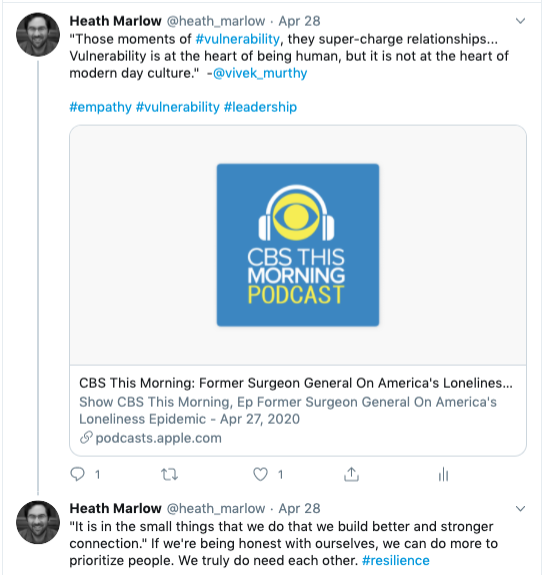
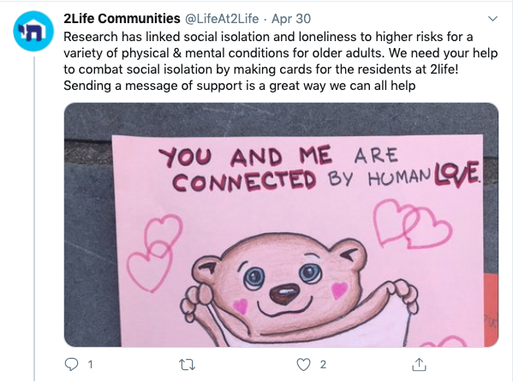
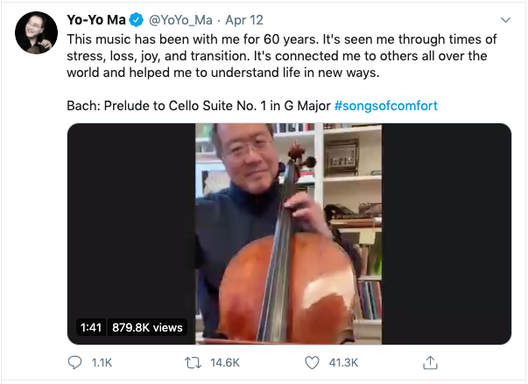
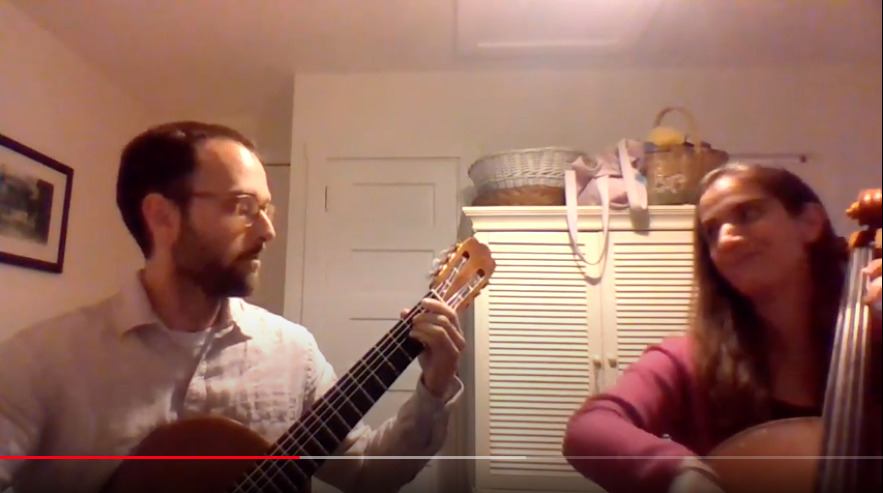
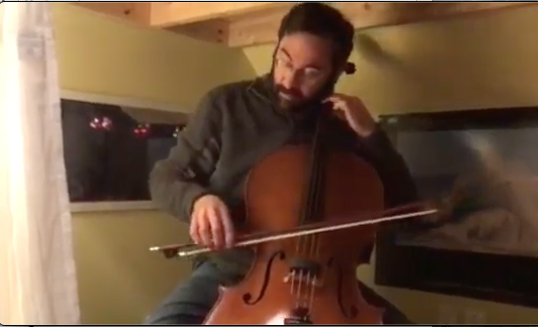
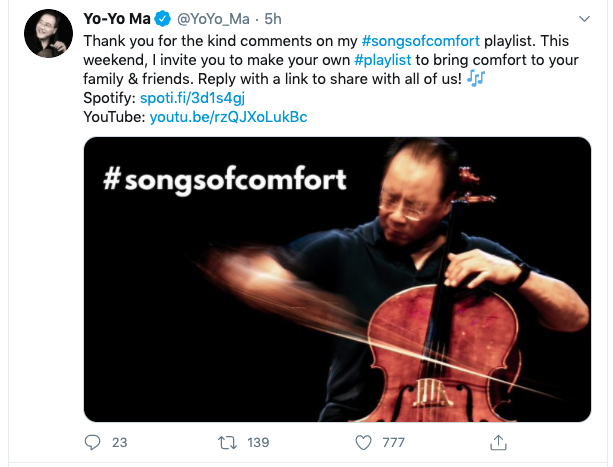
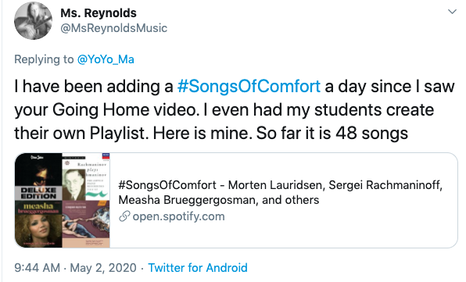
 RSS Feed
RSS Feed
